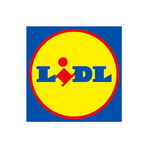Supermarket Showdown: The Price War Unfolds
March 27, 2025, 5:13 am

Location: United Kingdom, England, Welwyn Garden City
Employees: 10001+
Founded date: 1919
Total raised: $61.21K
The grocery landscape in the UK is shifting. Supermarkets are bracing for a fierce battle. The stakes? Customer loyalty and market share. The Co-op Group is leading the charge, investing over £70 million to lower prices on 100 essential items. This move is part of a broader strategy to attract value-seeking shoppers. The Co-op, owned by 5.5 million members, is not alone. Morrisons, Sainsbury’s, and Asda are also making drastic changes to stay competitive.
The Co-op’s recent investment marks a significant commitment to its customers. With a total of nearly £170 million spent on price reductions in two years, the message is clear: value matters. The grocery sector is under pressure. Rising costs and a cost-of-living crisis are squeezing consumers. For many, the weekly shop is a significant expense. In this climate, price becomes the kingmaker.
The Co-op is the seventh-largest supermarket in the UK. Yet, its market share growth lags behind competitors. Aldi and Lidl are gaining ground, with market shares increasing by 8.1% and 4.9%, respectively. The Co-op’s growth? A mere 0.7%. This discrepancy highlights the urgency of its pricing strategy. The Co-op is positioning itself against the discounters, acknowledging their role as the benchmark for value.
Morrisons is also in the fray. The supermarket announced plans to cut 365 jobs and close over 50 cafes. This decision is part of a broader review aimed at streamlining operations. The closures include meat and fish counters, florists, and pharmacies. Morrisons is focusing on what customers truly value. The aim is to redirect resources to more profitable areas.
Sainsbury’s is not sitting idle either. The supermarket is set to cut 3,000 jobs and close all in-store cafes. This move is part of a strategy to simplify operations and focus on core offerings. The supermarket sector is evolving. Companies are shedding non-essential services to concentrate on what drives sales.
Asda, under new leadership, is preparing for its own transformation. The new chief, Allan Leighton, has a “war chest” for price cuts. His goal? To make Asda the top choice for families seeking value. The competitive landscape is heating up. The term “trolley wars” is being thrown around, signaling the intensity of the competition.
For consumers, this price war could be a welcome relief. Many have been bracing for further price increases due to rising operational costs. The prospect of a price war may ease the burden on struggling families. For lower-income households, where grocery bills consume a larger portion of their income, this is crucial.
Recent data shows average grocery prices rose unexpectedly. In January, prices increased by 3%, followed by a 3.3% rise in February. Despite discounts, the cost of living crisis looms large. Shoppers are increasingly hunting for value. The competition among supermarkets is intensifying, and the hunt for value is driving the narrative.
The supermarket sector is at a crossroads. Companies are reevaluating their strategies. The focus is shifting from expansion to efficiency. As they cut jobs and close services, the aim is to streamline operations. This is a necessary response to the changing market dynamics.
The Co-op’s aggressive pricing strategy is a direct response to these pressures. It recognizes that in today’s economy, price is paramount. Shoppers are looking for the best deals. The Co-op is positioning itself as a viable alternative to discount retailers. It’s a bold move, but one that reflects the current market realities.
Morrisons’ closures are a reflection of its need to adapt. The supermarket is prioritizing profitability over maintaining a broad range of services. This is a trend seen across the industry. Asda’s new leadership is also indicative of a shift towards a more aggressive pricing strategy. The focus is on regaining market share and appealing to cost-conscious consumers.
The landscape is changing rapidly. Supermarkets are in a race to capture the hearts and wallets of shoppers. The price war is not just about discounts; it’s about survival. Companies must adapt or risk being left behind. The battle for the grocery dollar is fierce, and the stakes are high.
In conclusion, the UK supermarket sector is entering a new era. The price war is heating up, with major players like the Co-op, Morrisons, Sainsbury’s, and Asda all vying for dominance. For consumers, this could mean better prices and more choices. For supermarkets, it’s a test of resilience and adaptability. The coming months will reveal who emerges victorious in this high-stakes game. The grocery aisles are set for a showdown, and everyone is watching.
The Co-op’s recent investment marks a significant commitment to its customers. With a total of nearly £170 million spent on price reductions in two years, the message is clear: value matters. The grocery sector is under pressure. Rising costs and a cost-of-living crisis are squeezing consumers. For many, the weekly shop is a significant expense. In this climate, price becomes the kingmaker.
The Co-op is the seventh-largest supermarket in the UK. Yet, its market share growth lags behind competitors. Aldi and Lidl are gaining ground, with market shares increasing by 8.1% and 4.9%, respectively. The Co-op’s growth? A mere 0.7%. This discrepancy highlights the urgency of its pricing strategy. The Co-op is positioning itself against the discounters, acknowledging their role as the benchmark for value.
Morrisons is also in the fray. The supermarket announced plans to cut 365 jobs and close over 50 cafes. This decision is part of a broader review aimed at streamlining operations. The closures include meat and fish counters, florists, and pharmacies. Morrisons is focusing on what customers truly value. The aim is to redirect resources to more profitable areas.
Sainsbury’s is not sitting idle either. The supermarket is set to cut 3,000 jobs and close all in-store cafes. This move is part of a strategy to simplify operations and focus on core offerings. The supermarket sector is evolving. Companies are shedding non-essential services to concentrate on what drives sales.
Asda, under new leadership, is preparing for its own transformation. The new chief, Allan Leighton, has a “war chest” for price cuts. His goal? To make Asda the top choice for families seeking value. The competitive landscape is heating up. The term “trolley wars” is being thrown around, signaling the intensity of the competition.
For consumers, this price war could be a welcome relief. Many have been bracing for further price increases due to rising operational costs. The prospect of a price war may ease the burden on struggling families. For lower-income households, where grocery bills consume a larger portion of their income, this is crucial.
Recent data shows average grocery prices rose unexpectedly. In January, prices increased by 3%, followed by a 3.3% rise in February. Despite discounts, the cost of living crisis looms large. Shoppers are increasingly hunting for value. The competition among supermarkets is intensifying, and the hunt for value is driving the narrative.
The supermarket sector is at a crossroads. Companies are reevaluating their strategies. The focus is shifting from expansion to efficiency. As they cut jobs and close services, the aim is to streamline operations. This is a necessary response to the changing market dynamics.
The Co-op’s aggressive pricing strategy is a direct response to these pressures. It recognizes that in today’s economy, price is paramount. Shoppers are looking for the best deals. The Co-op is positioning itself as a viable alternative to discount retailers. It’s a bold move, but one that reflects the current market realities.
Morrisons’ closures are a reflection of its need to adapt. The supermarket is prioritizing profitability over maintaining a broad range of services. This is a trend seen across the industry. Asda’s new leadership is also indicative of a shift towards a more aggressive pricing strategy. The focus is on regaining market share and appealing to cost-conscious consumers.
The landscape is changing rapidly. Supermarkets are in a race to capture the hearts and wallets of shoppers. The price war is not just about discounts; it’s about survival. Companies must adapt or risk being left behind. The battle for the grocery dollar is fierce, and the stakes are high.
In conclusion, the UK supermarket sector is entering a new era. The price war is heating up, with major players like the Co-op, Morrisons, Sainsbury’s, and Asda all vying for dominance. For consumers, this could mean better prices and more choices. For supermarkets, it’s a test of resilience and adaptability. The coming months will reveal who emerges victorious in this high-stakes game. The grocery aisles are set for a showdown, and everyone is watching.

